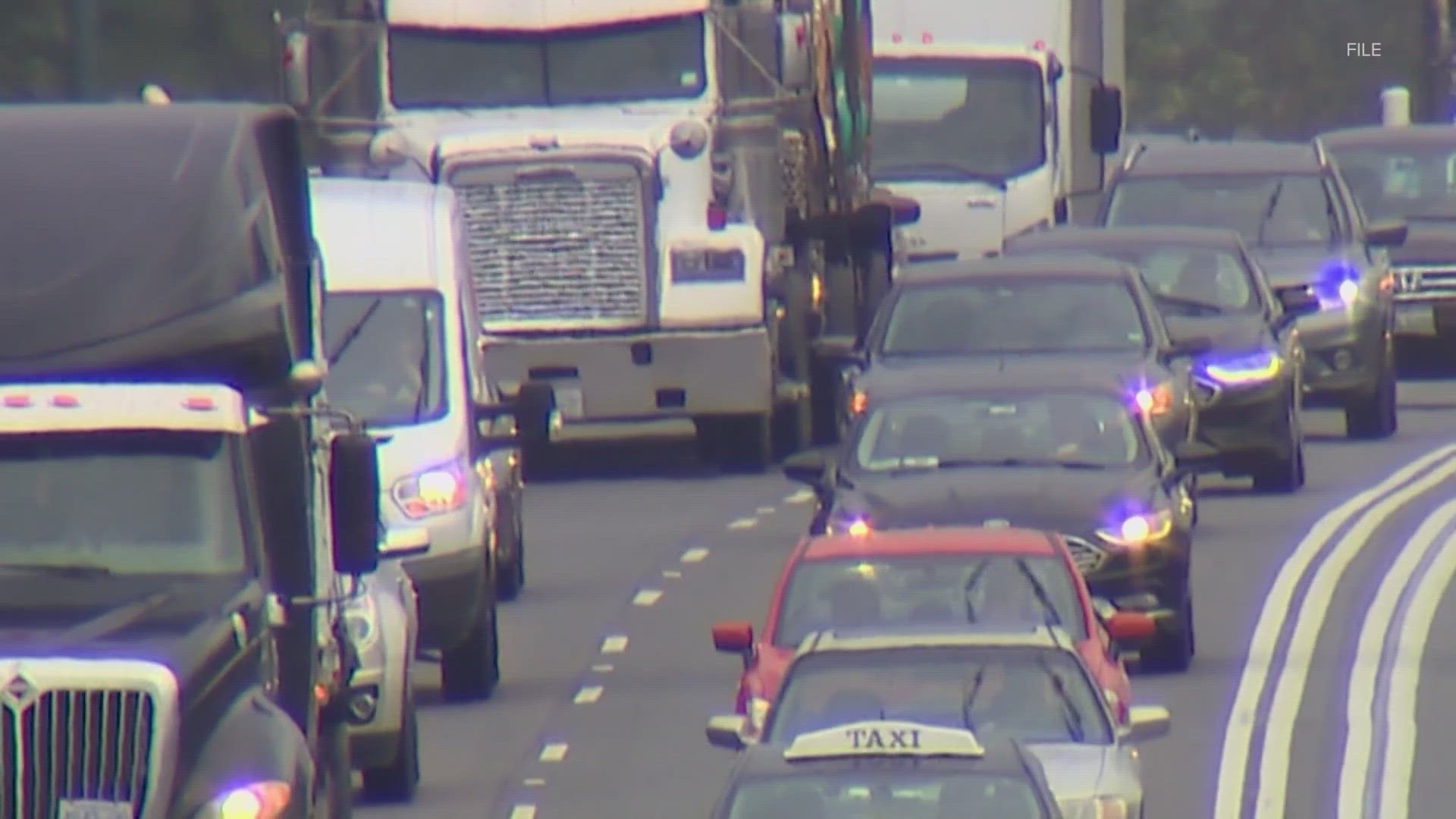SEATTLE — A new survey published this week revealed how Seattle's commuting habits have changed since the beginning of the COVID-19 pandemic and the proliferation of remote work.
The nonprofit Commute Seattle said in its report documenting the city's evolving commute habits that more people work in person on Tuesday, Wednesday and Thursday, leaving the roads less busy on Monday and Friday. The survey found that 52% of people work remotely on Monday and 57% on Friday, compared to 39% on Tuesday and Wednesday. More people take transit, bike, walk and drive alone in the middle of the week, compared to trends before the pandemic, according to Commute Seattle.
Childcare has shaped Seattle's commute, becoming the third-highest reason why people drive alone to work, the survey detailed. People with children or adult dependents were more likely to drive alone to work compared to people without dependents.
"If we can make it easier to get to childcare by walking, biking, and transit, we can make it easier to get to work using those travel options, as well," Commute Seattle said in its report.
Commute Seattle said people working in central Seattle are more likely to use public transportation or work remotely (69%) compared to people living outside of central Seattle (41%). In fact, the amount of people driving to central Seattle for work has dropped significantly. The survey found that 20% of people working in central Seattle commute by driving, compared to 33% of people 10 years ago, Meanwhile, the rate of driving to work is 40% for people working outside of the central city.
Researchers said the type of houses we live in heavily impacts commute habits too. People who live in apartments and condos are more likely to walk, bike, and take transit, and are less likely to telework, according to the survey.
Even as remote work has risen in recent years, women, Black, Latino and Native Hawaiian-Pacific Islanders are less likely to work remotely. The survey found that remote workers are typically higher income earners, with 51% of households earning over $150,000 a year reporting remote work.
Instead of driving to work, Seattlelites have replaced the work commute with more frequent trips to grocery stores, healthcare, and school pick up and drop off. Over 75% of these trips are done by driving alone, according to the survey.

